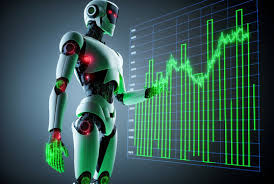In the ever-evolving landscape of financial markets, technology continues to play a pivotal role in reshaping trading methodologies. Among the myriad of tools available to traders, one concept that has gained significant attention is that of Forex robots. These automated trading systems, also known as Expert Advisors (EAs), forex robot to revolutionize the way individuals engage with the foreign exchange market. However, their efficacy and ethical implications remain subjects of debate within the trading community.
Forex robots are algorithmic programs designed to execute trades on behalf of traders, eliminating the need for manual intervention. They operate based on predefined sets of rules and parameters, utilizing complex mathematical algorithms to analyze market data and make trading decisions. Proponents of these systems argue that they offer several advantages, including the elimination of emotional bias, rapid execution of trades, and the ability to operate 24/7 across multiple markets.
One of the key purported benefits of Forex robots is their potential to generate consistent profits without human intervention. These systems can process vast amounts of data within milliseconds, identifying trading opportunities and executing trades with precision. Furthermore, they can operate in volatile market conditions where human traders may hesitate or make errors due to emotional factors.
Moreover, Forex robots are often marketed with promises of impressive returns, attracting traders who seek passive income streams or wish to augment their existing trading strategies. Some vendors provide backtested results and performance metrics to demonstrate the effectiveness of their robots, further enticing investors with the allure of potential profits.
However, the reality of Forex robots is not without its challenges and controversies. Critics argue that while these systems may perform well under certain market conditions, they often fail to adapt to changing dynamics or unforeseen events. Market volatility, unexpected news events, and structural changes can lead to significant losses if a robot’s algorithm is not equipped to handle such scenarios.
Additionally, concerns have been raised regarding the transparency and integrity of Forex robots. The proprietary nature of their algorithms makes it difficult for traders to fully understand the logic behind their trading decisions. Furthermore, some vendors may engage in deceptive marketing practices or provide misleading information about the performance capabilities of their robots, leading to disillusionment among traders.
Another ethical consideration is the potential for Forex robots to exacerbate market volatility or engage in manipulative trading practices. In an environment where automated systems account for a significant portion of trading volume, the actions of these robots can amplify market movements and distort price dynamics, potentially harming market stability.
Furthermore, the reliance on Forex robots raises questions about the role of human judgment and expertise in trading. While automation can streamline certain aspects of the trading process, it cannot replace the nuanced decision-making abilities and intuition possessed by experienced traders. Overreliance on automated systems may lead to complacency and a lack of critical thinking skills among traders.
Despite these challenges, the popularity of Forex robots continues to grow, driven by advancements in technology and the allure of passive income generation. However, traders must approach the use of these systems with caution and skepticism, conducting thorough due diligence and understanding the risks involved.
In conclusion, Forex robots represent a double-edged sword in the world of trading. While they offer the potential for efficiency and profitability, they also pose risks and ethical dilemmas that cannot be overlooked. As with any trading tool, careful consideration and prudent risk management are essential to harnessing the benefits of Forex robots while mitigating their drawbacks. Ultimately, the decision to incorporate automated systems into one’s trading strategy should be based on a comprehensive understanding of their capabilities and limitations, coupled with a commitment to responsible trading practices.
